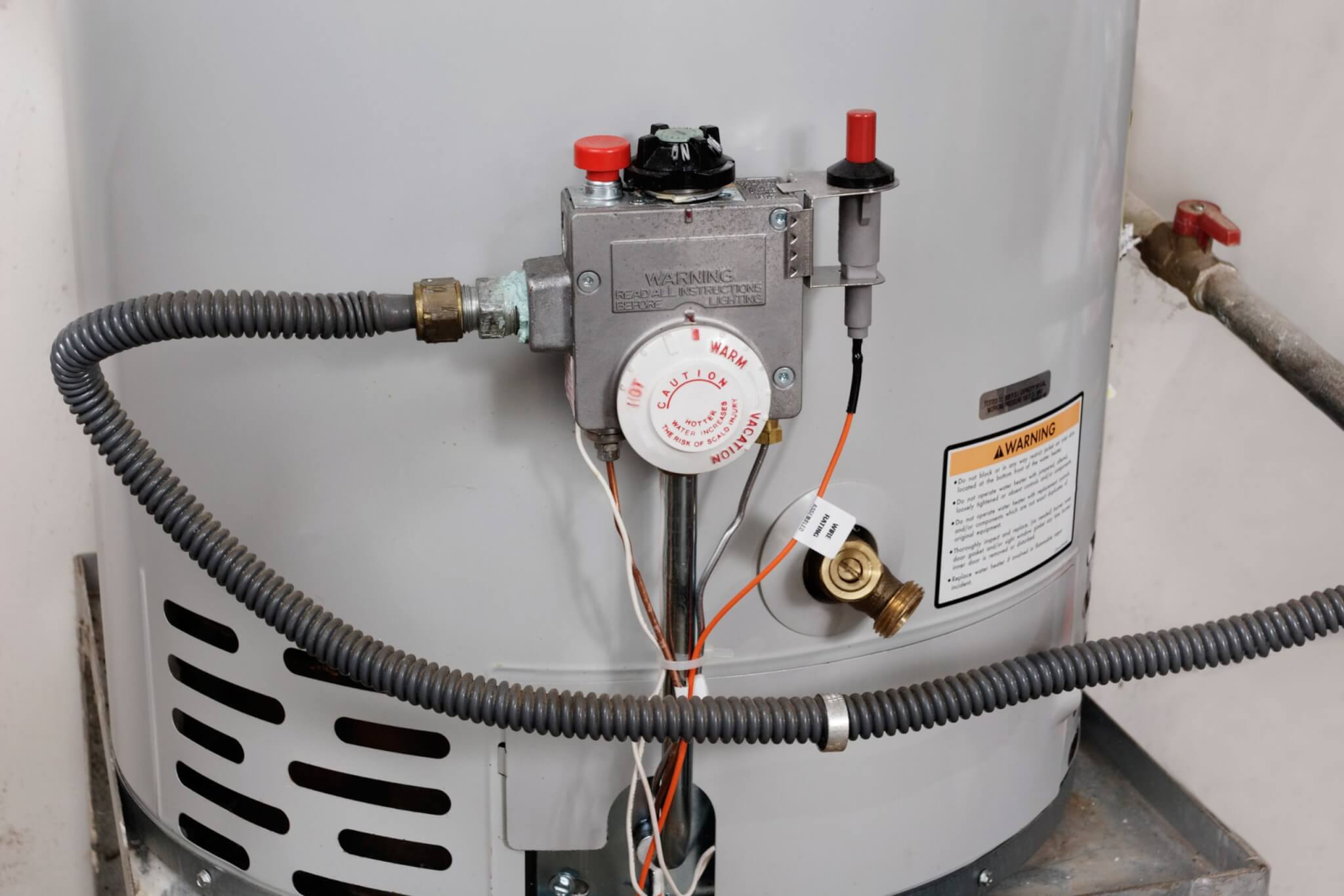Water Heaters

Water heating is an essential system in our homes. Because it’s used every day, water heating is often the largest user of energy in the house.
Whether you use electric, gas, or tankless water heaters, they may occasionally all need maintenance or repair to continue providing hot water efficiently.
TYPES OF WATER HEATERS
Electric Water Heaters
In electric water heaters, the water is heated through rods that are placed in a water storage tank. Heat is transferred from the rods to the water, warming the water in the tank. While more efficient than gas heaters, these types of heaters are often more expensive.
Gas Water Heaters
For gas water heaters, a gas flame is customarily used to heat the water. While gas water heaters are typically less expensive to operate than electric heaters, the initial cost may be more. This is because the gas water installation process is much more complicated due to the various chemicals involved in the installation.
Tankless Water Heaters
Tankless heaters are also known as demand-type heaters because hot water is only provided when it’s needed. Unlike both electric and gas water heaters, tankless water heaters can heat water without the use of a tank. These heaters can often be found in bathrooms or as a booster for other appliances like dishwashers.
When deciding what type of water heater to purchase from Reliable Comfort Inc, it’s essential to consider the needs in your home.
You might ask yourself:
- How many people will be using the heater?
- How much space do we have for a water heater?
- How much hot water will be used per day?
Assessing your needs before making your final decision can help you choose the best type of water heater for you and your family.
Water Heater Maintenance – Why Important?
If you notice that your water temperature is leaving much to be desired, perhaps it might be time for some routine maintenance with your water heater.
A common cause of this may be a buildup of sediment in your water heater. The longer you’ve had your water heater, the more time it’s had to accumulate a buildup of sediment and lime deposits.
When your water heaters are not cleaned regularly, this buildup of sediment may continue and eventually form a barrier between the burner and the water. This forces the burner to work harder to heat the water.
If a flood has damaged your water heater, it’s recommended that the entire unit be replaced. Although parts may be cleaned, corrosion may occur, damaging valves and controls.
FAQ
What does the Energy Factor (EF) on my water heater mean?
The water heater Energy Factor (EF) is a measure of the overall efficiency of the water heater. This is determined by comparing the energy in the heated water used daily to the total daily energy consumption of the water heater. The EF can be used to compare the energy efficiency of water heaters. Water heaters with higher EFs will have lower annual operating costs than comparable models with lower EFs. A higher EF signifies a more efficient model. Water heaters with high EF ratings may cost more initially, but save energy and money in the long run. Eventually, they will pay for themselves through a lifetime of energy savings.
Why doesn't my old water heater make as much hot water as it used to?
The answer may be that you have sediment buildup in your tank. As water heaters age, they tend to accumulate sediment and lime deposits. If the heaters are not cleaned periodically, the sediment may rise to a level that will act as a barrier between the burner and the water, making it harder to heat. An article published in a national ASPE plumbing journal states: for every half inch of sediment on the bottom of a gas fired water heater, it requires 70% more fuel to heat the water.
Can I use my water heater with a solar heating system?
With the increasing costs of energy and a desire for environmental friendliness, some customers are turning to the sun as a way to heat their domestic water. Bradford White manufactures a solar water heating storage tank for use with solar systems. This tank takes the heated water from the solar panels and uses it as a heat source instead of conventional gas, oil or electric heat sources unlike other tanks, this water heater has an electric heating element for back up on cloudy days, and when the solar system is not providing enough heat. However, it is important that you use only POTABLE (or domestic use) water in this tank.
Is a drain pan necessary?
A water heater should be placed in an area that will prevent damage to floors, ceilings, and furniture if the heater leaks. When this is not possible, a drain pan must be installed under the water heater. Since a typical drain pan doesn’t hold that much water, it must have a pipe to a drain or other outlet for the water. When installed properly, a drain pan and pipe will keep any leakage under control and protect your belongings from water damage.

